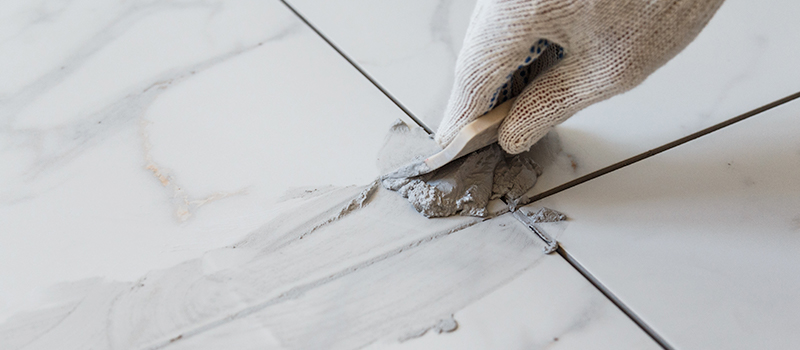Imagine you’ve just renovated your bathroom, carefully selecting beautiful tiles and opting for cement grout to seal the gaps. However, a few months later, you start noticing water seeping through the grout lines. This raises the question: is cement grout truly waterproof? Understanding the intricacies of grout composition and the variables that impact its water resistance is crucial in ensuring the longevity of your tiling project.
Understanding Cement Grout Composition
- Understanding the composition of cement grout is essential for ensuring its proper application and performance in various construction projects. Cement grout is primarily composed of cement, water, and additives. When water is added to the cement mix, a chemical reaction known as hydration occurs, forming a dense paste that hardens over time. This hardened paste fills the gaps between tiles, providing strength and stability to the structure.
- In terms of moisture penetration, it’s crucial to understand how the composition of cement grout affects its waterproofing properties. Properly mixed cement grout creates a dense matrix that prevents water from seeping through. Additives such as latex or acrylic can enhance the grout’s water resistance, making it more suitable for areas prone to moisture exposure.
Factors Affecting Grout Waterproofing
- Factors influencing the waterproofing of grout include the type of additives used, the ratio of water to cement, and the curing process. When considering grout sealing effectiveness, the choice of additives plays a crucial role. Additives such as acrylics or latex can enhance the grout’s waterproofing properties, making it more resistant to moisture penetration sources.
- Moreover, the ratio of water to cement is vital in determining the grout’s ability to repel water. A higher ratio of water can result in a weaker grout structure, making it more susceptible to moisture ingress. Conversely, a lower water-to-cement ratio increases the grout’s density and strength, improving its waterproofing capabilities.
- Additionally, the curing process significantly impacts the grout’s waterproofing performance. Proper curing allows the grout to reach its maximum strength and durability, thereby reducing the chances of water seepage. By carefully considering these factors, one can enhance the waterproofing effectiveness of grout in various applications.

Testing Cement Grout Water Resistance
- To assess the water resistance of cement grout, conducting specific tests is crucial in determining its effectiveness in repelling moisture. Various methods can be employed to evaluate grout durability and its ability to withstand water penetration.
- One common test is the water absorption test, where the grout sample is submerged in water for a specified period to observe how much water it absorbs. The lower the water absorption, the higher the grout’s water resistance.
- Another important test is the water penetration test, which involves applying water pressure to the grout surface and monitoring for any signs of water seepage. This test helps assess the effectiveness of waterproofing techniques used in the grout mixture. Additionally, freeze-thaw testing can be conducted to simulate harsh weather conditions and assess how well the grout maintains its water resistance over time.
Enhancing Cement Grout Waterproofing
- Enhancing the waterproofing of cement grout requires strategic modifications to the grout mixture composition. To improve waterproofing, consider innovative waterproofing techniques and grout sealing methods. One effective technique is to incorporate waterproofing additives into the grout mixture. These additives enhance the grout’s ability to repel water, preventing moisture penetration and enhancing durability.
- Additionally, utilizing grout sealants can provide an extra layer of protection against water infiltration. Sealants act as a barrier, sealing the grout’s surface and preventing water from seeping through. Regularly applying grout sealants can significantly increase the waterproofing capabilities of cement grout, especially in high-moisture areas like bathrooms and kitchens.
- Furthermore, advancements in grout technology have led to the development of specialized waterproof grout products that offer superior waterproofing properties. These innovative grout options are designed to withstand water exposure and maintain their integrity over time, making them ideal for areas prone to moisture.
Maintenance Tips for Waterproof Grout
- For effective maintenance of waterproof grout, regular cleaning and inspection are essential to preserve its waterproofing properties. To ensure the longevity of your grout’s waterproof capabilities, it’s crucial to employ proper cleaning techniques and sealant application. Use a pH-neutral cleaner and a soft brush or cloth to clean the grout regularly, avoiding harsh chemicals that may degrade the sealant. Inspect the grout for any signs of wear or damage, such as cracks or discoloration, and address them promptly to prevent moisture from seeping through.
- In addition to cleaning, moisture prevention is key to maintaining waterproof grout. Keep the grout area dry and well-ventilated to minimize the risk of water damage. Consider applying a grout sealant every 6 months to a year to enhance its waterproofing and protect it from stains and moisture penetration. By following these maintenance tips and being proactive in caring for your waterproof grout, you can ensure its durability and effectiveness in keeping water at bay.
Conclusion
In conclusion, cement grout isn’t inherently waterproof, but its water resistance can be improved through various methods. Factors such as composition, application, and maintenance play a significant role in determining the effectiveness of grout waterproofing. By understanding these factors and implementing appropriate measures, it’s possible to enhance the waterproofing properties of cement grout and ensure its longevity and durability in various applications.